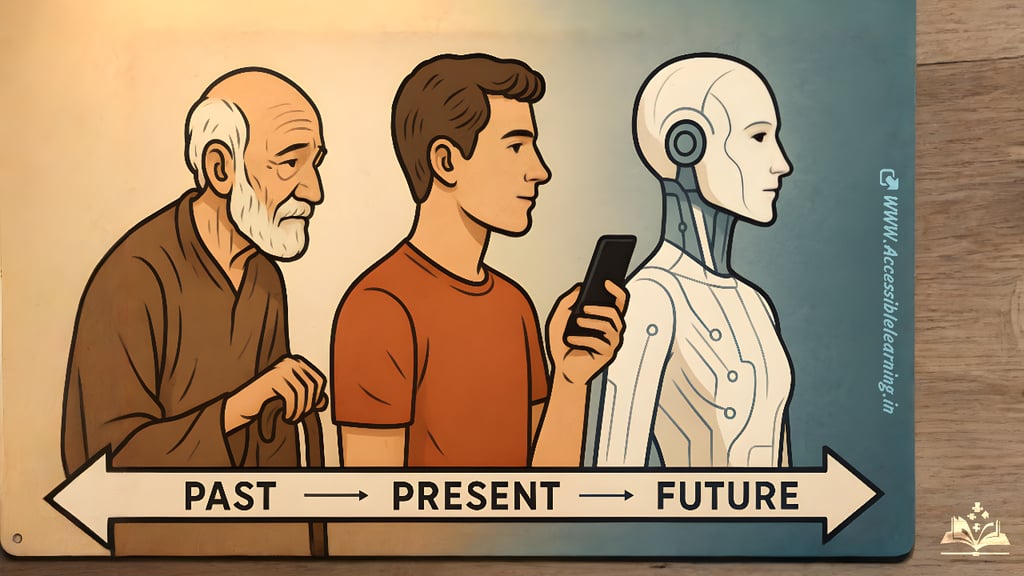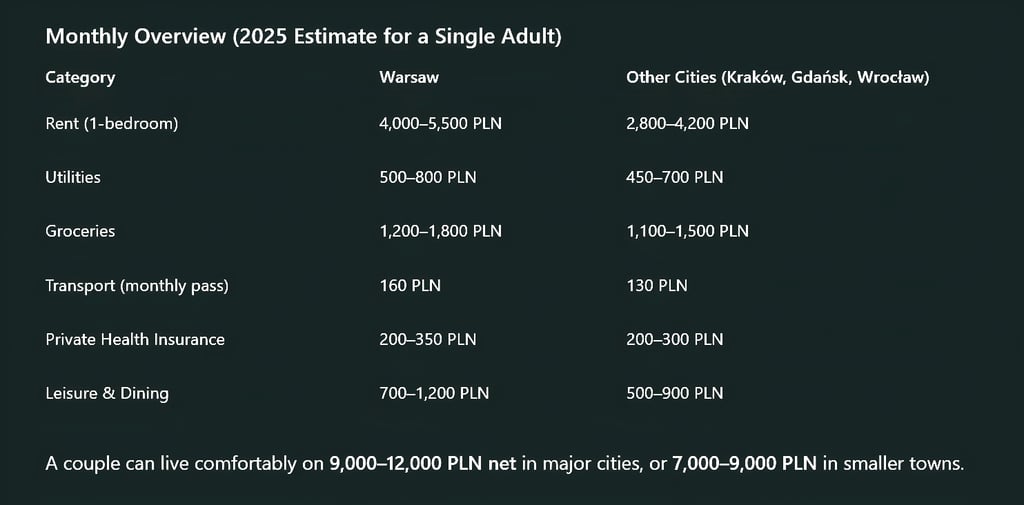
Past Generations vs Present vs Future: The Evolution of Human Values Through Time
Explore how human values have evolved from the disciplined roots of past generations to the expressive individuality of the present and the tech-conscious ethics of the future. This in-depth analysis reveals why values change, how modern life reshapes morality, and what it truly means to stay human in a world of constant transformation. A timeless reflection on culture, identity, and the evolution of human conscience.
A LEARNINGHARSH REALITYGLOBAL ISSUESAI/FUTURE
--- | Kim Shin
11/1/20256 min read


Every generation believes it lives at the peak of progress—that its way of thinking, living, and loving is the most evolved. Yet, history shows that values are not fixed; they are fluid, constantly adapting to the tides of economy, technology, culture, and survival.
The world your grandparents lived in is almost unrecognizable today. Their principles—built on sacrifice, patience, and honor—have gradually transformed into our modern pursuit of individuality, freedom, and emotional well-being. Tomorrow’s generation, growing alongside artificial intelligence and virtual realities, may redefine morality altogether.
So how did we get here—and where are we heading?
Past Generations: When Honor Was the Currency of Life
For much of human history, values were shaped by scarcity, struggle, and structure. Our ancestors lived in a world that demanded discipline, obedience, and endurance.
The Foundation of Order and Duty
In traditional societies, people believed in clear hierarchies—family, religion, and community came before the individual. Life revolved around responsibility: working hard, respecting elders, and preserving customs.
Family as an institution: Family wasn’t just emotional; it was economic and moral. Decisions were collective, not personal.
Work ethic: The “9-to-5” didn’t exist—but work defined one’s worth. Physical labor and craftsmanship commanded pride.
Religious morality: Faith-guided moral codes shaped what was “right” or “wrong” beyond question.
Patience and endurance: Life was slow but meaningful. People waited—for letters, seasons, and results—and found satisfaction in perseverance.
The Underlying Mindset
Older generations lived through wars, depressions, and uncertainty. They valued stability over self-expression. Their world was built on the idea that duty ensures survival, not desire.
Yet this discipline came at a cost: conformity over creativity, silence over emotional openness, and respect over self-assertion. Individual dreams are often drowned under collective expectations.
Still, there was dignity in simplicity—a sense that integrity mattered more than convenience.
Present Generation: When Freedom Became the New Faith
The 21st century redefined everything—work, relationships, gender roles, and even reality itself. The Internet, globalization, and social media dissolved boundaries, connecting minds but often isolating hearts.
We now live in the era of choice—a time where every individual can shape their path, identity, and belief system.
The Rise of Individualism and Expression
Modern generations value freedom, authenticity, and equality above all else. They seek emotional truth, not just social acceptance.
Identity as self-creation: Gender, culture, and lifestyle are no longer inherited—they’re chosen.
Social awareness: Modern people fight for causes—climate, equality, mental health, and animal rights—seeing morality as action, not obedience.
Technology as a mirror: The digital world amplifies voices but also creates echo chambers of comparison and distraction.
Redefinition of success: Wealth and status are losing ground to purpose, creativity, and emotional fulfillment.
The Emotional Revolution
For the first time in history, society encourages emotional honesty. Talking about anxiety, self-doubt, or trauma is no longer taboo—it’s a form of strength.
But this openness comes with new challenges:
Constant exposure to information breeds fatigue and confusion.
The chase for instant validation often weakens patience.
Freedom without guidance sometimes turns into existential drift.
Modern values have liberated us—but also fragmented us. We’re free to express ourselves, yet more pressured to perform. We have endless connections, yet limited depth.

Future Generations: When Humanity and Technology Will Coexist
The future won’t just be about humans adapting to change—it will be about co-creating morality with machines. Artificial intelligence, biotechnology, and space colonization will raise profound ethical questions:
What does “life” mean when we can extend it?
What does “truth” mean in a world of synthetic realities?
And what does “human” mean when machines think, feel, and decide?
The Ethics of Tomorrow
Future values will likely revolve around balance—between innovation and identity, progress and preservation.
Eco-consciousness: Sustainability will evolve from an ideal to a moral responsibility. Destroying nature will be seen as unethical as violence.
Digital-human harmony: Emotional intelligence will coexist with technological fluency. Future generations will learn to empathize through AI-assisted understanding.
Global citizenship: Borders may fade, replaced by shared ethical codes—humanity as a single community.
Truth in a post-reality world: With AI-generated realities, distinguishing authenticity from illusion will become a new virtue.
The Rise of Technological Morality
Machines will make decisions once reserved for humans—from legal judgments to healthcare choices. Future ethics will question: Can morality be programmed?
Children born into such a world will redefine empathy, accountability, and even love. Emotional experiences might be simulated—but values will determine whether those experiences remain human at their core.
The Search for Meaning
When every task can be automated, meaning will replace labor as humanity’s central pursuit.
The next generation may value spiritual depth, emotional intelligence, and ethical creativity as much as we value efficiency today.
The Universal Truth: Change Is the Only Constant
Values change because the conditions of life change. The past demanded obedience; the present demands awareness; the future will demand wisdom.
But beneath these shifts, human desires remain the same: to belong, to love, to be understood, and to make a difference.



Finding Balance Between Eras
Instead of judging generations, we can learn from their wisdom:
From the past, take resilience, respect, and self-discipline.
From the present, embrace openness, empathy, and authenticity.
For the future, cultivate responsibility, awareness, and compassion.
True progress isn’t about replacing old values—it’s about evolving them. The strongest societies are those that blend the patience of the past, the passion of the present, and the foresight of the future.
The Moral Evolution of Humanity
Humanity’s story isn’t a straight line of advancement—it’s a spiral. We revisit old virtues in new forms, finding deeper meaning as we evolve. What was once “obedience” has become “mindfulness.” What was once “tradition” is now “heritage.”
As we move forward, the real challenge won’t be choosing between past and future—it will be remaining human in a world that constantly redefines what that means.
“Technology will change how we live, but values will decide how we survive.”
FAQs
Q: Why do human values change from one generation to another?
Values shift because every generation faces new realities—economic changes, wars, technologies, and social movements. As life conditions evolve, people redefine what is moral, meaningful, and necessary for survival and happiness.
Q: Are modern generations losing traditional values?
Not exactly. They’re transforming them. Respect, honesty, and empathy still exist, but they’re expressed differently—through openness, inclusivity, and emotional intelligence rather than rigid conformity.
Q: How can we balance modern freedom with traditional discipline?
By practicing conscious balance—embracing creativity and individuality without abandoning patience, respect, and accountability. Values don’t have to compete; they can complement.
Q: What is the biggest moral challenge for the future generation?
The next era will face ethical dilemmas in technology and identity—such as AI consciousness, genetic modification, and virtual existence. The question will no longer be just what is right, but who decides what’s right when machines participate in moral reasoning.
Q: Why do older generations often criticize younger ones?
Because values are emotional, not just logical. When a generation sees the next one changing moral boundaries, it feels like watching the erosion of familiar meaning. However, each generation’s changes often pave the way for progress the older one couldn’t foresee.
Q: How does culture influence generational values?
Culture acts as the lens through which values are shaped. Eastern societies tend to emphasize collectivism and duty, while Western ones lean toward individuality and self-expression. Globalization, however, is blending these distinctions.
Q: Can values ever disappear completely?
No—they evolve. For example, “obedience” has evolved into “mutual respect,” and “tradition” into “heritage.” Values rarely die; they transform with context.
Q: What’s one universal value that never changes?
Empathy. Whether in an ancient village or a futuristic AI-driven city, the human ability to feel for another being remains the cornerstone of civilization.

Interesting Insights: How Values Shape Generational Identity
The Generation Gap Is Really a Value Gap
Most intergenerational conflicts aren’t about facts—they’re about values. Parents emphasize security; youth emphasize freedom. Both are right, but from different emotional landscapes.
Material Comfort Doesn’t Equal Moral Progress
Despite technological growth, studies show modern societies face higher loneliness and anxiety rates than past generations. It reveals that emotional connection, not advancement, defines human fulfillment.
Technology Is Redefining Ethics Faster Than Ever
What once took centuries to evolve now changes in decades. Privacy, truth, and identity—once moral constants—are now fluid under digital influence.
The Rise of Emotional Intelligence as a Core Value
Past generations valued toughness; present ones value sensitivity. Emotional awareness is becoming a defining strength of the modern moral code.
Globalization Creates “Shared Morality”
Thanks to the internet, young people across continents now share similar views on gender equality, sustainability, and justice—forming a global moral network that transcends borders.
The Return of Spiritual Curiosity
Interestingly, while religion has declined in formal practice, spirituality and mindfulness are resurging. People are seeking meaning beyond material success—proving that the need for purpose never fades.
Future Ethics Will Be Collective, Not Personal
Future generations may prioritize the greater good over individual desires—focusing on sustainability, AI fairness, and ecological balance as core virtues.
The Circle of Values Always Comes Back Around
History moves in cycles. After waves of freedom, societies often return to structure; after chaos, they crave stability. Humanity doesn’t abandon values—it revisits them from a higher level of understanding.
Subscribe To Our Newsletter
All © Copyright reserved by Accessible-Learning Hub
| Terms & Conditions
Knowledge is power. Learn with Us. 📚


